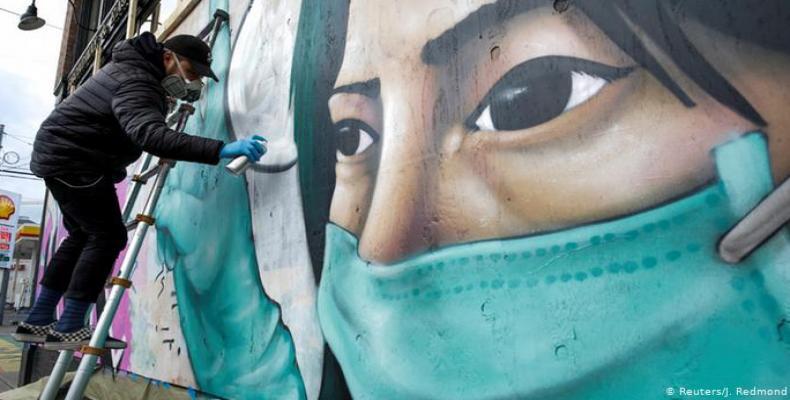
Brussels, November 4 (RHC)-- Europe passed a grim milestone Tuesday after reporting more than 11 million coronavirus cases, as Austria and Greece became the latest countries on the continent to impose shutdowns.
Still reeling from a deadly shooting spree in the streets of Vienna on Monday evening, Austria went into partial lockdown while Greece shut down major cities. They joined Belgium, France, Germany and Ireland in re-imposing tough curbs on people's lives in an echo of last spring as the virus that first emerged in China at the end of 2019 shows no sign of abating.
Europe has now registered 11,008,465 infections and almost 285,000 deaths according to an AFP tally of official sources on Tuesday.
The stringent new measures that are also set to hit England this week have caused exasperation and anger as experts say Europe risks being hit with further waves of infections next year if no effective vaccine is found.
Underscoring the pernicious effect of restrictions on economies and livelihoods, Spain — where tourism accounts for some 13 percent of employment — said the number of foreign visitors plunged by 75 percent during the first nine months of the year. As a result, countries are seeking desperately for alternatives to lockdowns.
The British government has decided to roll out coronavirus tests for the entire population of its hard-hit, 500,000-strong city of Liverpool in a pilot scheme that could be scaled up nationwide.
"Dependent on their success in Liverpool, we will aim to distribute millions of these new rapid tests between now and Christmas and empower local communities to use them to drive down transmission in their areas," Prime Minister Boris Johnson said. The city joins Slovakia, which has decided to test its entire population of 5.4 million people.
In Belgium, which has one of the highest numbers of deaths compared to its population, authorities might have shut down the country but have nonetheless decided to keep book stores open for the sake of people's mental well-being.
"In a period of anguish and uncertainty that brings us back to our own mortality, the book probably remains the best food for thought and reflection," said Brussels bookseller Marc El Khadem, as customers thumbed through pages around him.
In Greece, cafes, restaurants, bars, gyms, cinemas and theaters and most non-essential businesses shut down in Athens and in the northern cities of Thessaloniki and Serres, which went under even harsher lockdowns.
The measures have drawn concern among business-owners and employees in a country that only recently emerged from a crippling financial crisis that began in 2010. But government spokesman Stelios Petsas warned "the measures will toughen if we do not adhere to them. Unfortunately, fear seems to mobilize societies."
A French hospitals federation said the pressure was such that authorities were planning to transfer COVID-19 patients to Germany for treatment — as Belgium is already doing.
And Germany should postpone non-urgent surgeries to free up beds and staff, advised Uwe Janssens, president of Germany's Interdisciplinary Association for Intensive Care and Emergency Medicine.
Speaking at a press conference alongside Health Minister Jens Spahn, he said Germany had enough beds and ventilators for now. A "key problem" however was a potential lack of trained medical personnel to treat intensive care patients, partly because of chronic understaffing but also because doctors and nurses themselves were having to quarantine at times.

